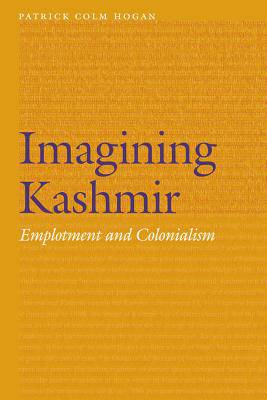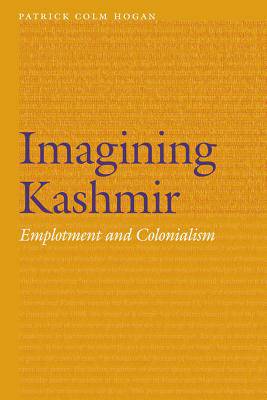
- Afhalen na 1 uur in een winkel met voorraad
- Gratis thuislevering in België vanaf € 30
- Ruim aanbod met 7 miljoen producten
- Afhalen na 1 uur in een winkel met voorraad
- Gratis thuislevering in België vanaf € 30
- Ruim aanbod met 7 miljoen producten
Zoeken
Omschrijving
During the 1947 partition of the Indian subcontinent, Kashmir-a Muslim-majority area ruled by a Hindu maharaja-became a hotly disputed territory. Divided between India and Pakistan, the region has been the focus of international wars and the theater of political and military struggles for self-determination. The result has been great human suffering within the state, with political implications extending globally. Imagining Kashmir examines cinematic and literary imaginings of the Kashmir region's conflicts and diverse citizenship, analyzing a wide range of narratives from writers and directors such as Salman Rushdie, Bharat Wakhlu, Mani Ratnam, and Mirza Waheed in conjunction with research in psychology, cognitive science, and social neuroscience. In this innovative study, Patrick Colm Hogan's historical and cultural analysis of Kashmir advances theories of narrative, colonialism, and their corresponding ideologies in relation to the cognitive and affective operations of identity. Hogan considers how narrative organizes people's understanding of, and emotions about, real political situations and the ways in which such situations in turn influence cultural narratives, not only in Kashmir but around the world. Patrick Colm Hogan is a professor of English at the University of Connecticut, where he is also on the faculty of the Program in Cognitive Science and the Program in India Studies. He is the author of numerous books, including Understanding Nationalism: On Narrative, Cognitive Science, and Identity and Affective Narratology: The Emotional Structure of Stories (Nebraska, 2011).
Specificaties
Betrokkenen
- Auteur(s):
- Uitgeverij:
Inhoud
- Aantal bladzijden:
- 294
- Taal:
- Engels
- Reeks:
Eigenschappen
- Productcode (EAN):
- 9780803288591
- Verschijningsdatum:
- 1/10/2016
- Uitvoering:
- Hardcover
- Formaat:
- Genaaid
- Afmetingen:
- 152 mm x 229 mm
- Gewicht:
- 585 g

Alleen bij Standaard Boekhandel
+ 183 punten op je klantenkaart van Standaard Boekhandel
Beoordelingen
We publiceren alleen reviews die voldoen aan de voorwaarden voor reviews. Bekijk onze voorwaarden voor reviews.











